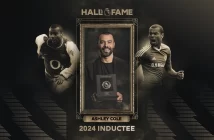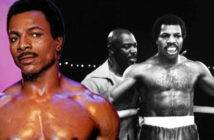According to the International Association of Athletics Federation (IAAF), which governs track, female Indian sprinter Dutee Chand was only eligible to compete if her “male hormone” or testosterone level was lowered beneath the male range. Starting with 2012 London, the International Olympic Committee (IOC) decided to abandon its policy banning female athletes with hyperandrogenism – an adrenal condition wherein persons have naturally high testosterone levels, an attribute seen in at least seven out of 1,000 elite female track and field athletes. These lifted restrictions specifically, drew attention to Caster Semenya, a highly successful South African runner whose gender identity was in question, and continued with the Chand case.
In a time where the gender lines are being blurred, we are seeing great steps in our evolution in society as well as within sport, one could merely look at the recent NFL, NBA hires or through former decathlon Gold medal winner Bruce Jenner’s “ I am Caitlyn,” statement. Nothing probably better represents gendered politics than the fact that the topic of sex testing even exists.
The procedure arose over concern that male and/or “intersexed” (the more politically correct term for “hermaphrodite”) athletes might pose as female competitors, the logic being that female-only events might need to be protected from males who might try to join a competition, emphasizing their strength and superiority. Recalling, Biology lessons 101: Both men and women have 22 pairs of non-sex chromosomes, women with two X chromosomes to determine gender, men with one X and one Y—the latter to establish maleness. With evaluations performed by a range of medical specialists, results nevertheless can be interpreted differently. The tests themselves, meanwhile, are also experienced differently, albeit the common reaction being that of embarrassment, degradation, and humiliation to the athlete.
Imagine, then, Dutee Chand’s dilemma when, although she was champion of India’s women’s 100-metres event in the 18-and-under category, she was dropped from competing in the Commonwealth Games contingent based on her natural levels of testosterone. Offered options of surgery or taking hormone-suppressing drugs, she held firm in her decision to maintain her body just the way it is. In addition to a highly supportive family, social media also helped, a global campaign called “Let Dutee Run!” was launched, and Bruce Kidd posted her case of “tragic disqualification” on H-Sport (Humanities and Social Sciences Online). After winning an appeal to the Court of Arbitration for Sport (CAS) in December 2014, Chand won Gold in the 100-meter and bronze in the 4X100-meter relay and declared: “I had two options: I was told I could go in for surgery to reduce the androgen levels or appeal to CAS. I decided the court would give me a permanent solution, for or against. Of course, I couldn’t have done that without help. What pushed me was my belief in the almighty. I knew He would protect me. What encouraged me further was the empathy and affection of my fellow athletes and national campers.”
Fortunately, just last week, on July 28, 2015 a victorious compromise was reached, when the final appeals court for global sports ruled that athletes’ testosterone levels are insufficient to bar certain women from competition—freeing Dutee Chand and other hyperandrogenous women like her to carry out their goals. While still a complex issue, then, gender verification’s growing dependence on “good faith” is encouraging, if still evolving.
Sport may not be a ‘level playing field’ in terms of genes, health, wealth or access to sport for athletes and in the same way it can be said that some athletes have ‘better’ hormones. One of the ways in which sport offers equal opportunities is through its rules which apply equally to everyone and sometimes these need to evolve. Sometimes sport pushes social norms forward and sometimes it is the other way round, in the end, for society to be more inclusive, we need sport to adapt and understand society.
This article was written by Linda K. Fuller Ph.D. University of Massachusetts, Professor of Communications at Worcester State University.



